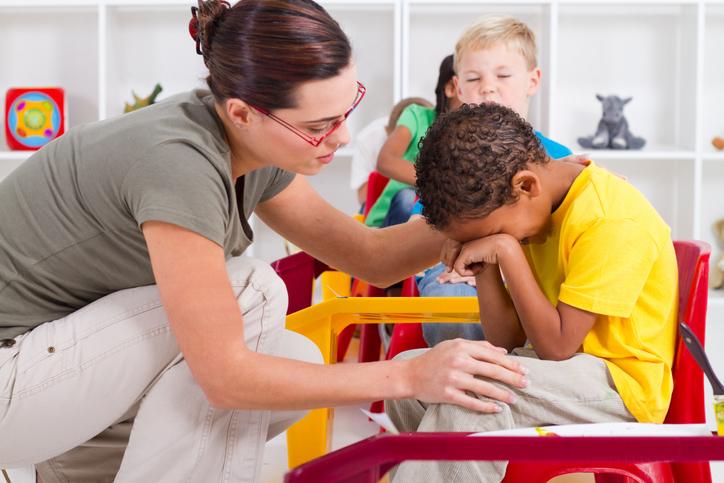If you’re considering educational assistant training, being able to effectively manage a crisis will help you set the tone for more productive classroom time while teaching children to have better emotional self-regulation.
The role of an educational assistant is incredibly rewarding. However, since meltdowns and crises in children are quite common, it’s important for these professionals to know how best to respond in such situations. School can be especially demanding for young ones with developing brains who may be dealing with various challenges both in and out of the classroom.
Read on to learn three essential strategies for responding to crises as an educational assistant.
Train online or on-campus for a job that pays more and means more.
Considering a career change?
1. Focus on Positive Reinforcement After Educational Assistant Training
When a child is exhibiting behaviour that is considered inappropriate, like screaming, breaking objects around them, or being violent, the natural reaction is to discourage the behaviour with some form of negative reinforcement. While consequences and time-outs are effective in some situations, they aren’t always the best course of action during a meltdown. At career college, you’ll learn that when it comes to a behavioural crisis, just like other distressing situations, prevention is better than cure.

After educational assistant training, remember that children respond far better to positive reinforcement
Throughout the day, try providing praise when you notice positive behaviours like sharing, listening attentively, or demonstrating an impressive understanding of classroom material. You can also utilize a system for rewarding good behaviour like giving out tokens that children can eventually exchange for a prize. Sometimes, small positive acknowledgements are all children need to improve their mood and sense of well-being, thus, preventing meltdowns. After educational assistant training, try to remember that all children are doing the best they can in the moment. This will make it easier to see and point out their positive behaviours.
2. Understand the Escalation Scale
A behavioural crisis might seem completely random, but in fact, there is a predictable framework that outlines the anatomy of a meltdown. The stages are as follows.
- Calm – This is the perfect time to use preventative measures like the one discussed above to set positive expectations and reinforce the positive behaviours you’re observing.
- Trigger – This stage occurs with sensory overload, a lack of positive reinforcement, or an unexpected event. Children may demonstrate agitation rather than calm.
- Agitation – Agitated children may become oppositional, causing them to lash out or resist transitions. This is the perfect time to intervene by providing choices and making environmental adjustments.
- Acceleration – When a child reaches this point, their agitation has peaked. The best course of action is to allow the meltdown to run its course. Disengage and use verbal de-escalation techniques, such as validating their emotions (not their actions) or providing a distraction.
- Deceleration – The child will begin to calm down.
- Recovery – The child has been calmed. This is an excellent time to encourage reflective thinking by speaking calmly about what happened and providing appropriate consequences.
3. Always Remain Calm and Take a Pause When Necessary
During a meltdown, children are not the only ones going through a difficult time. Surely, your patience will be tested from time to time. That being said, your ability to remain calm will help you apply the right strategies to de-escalate the situation quickly and restore a child’s sense of well-being. If you need to pause in the process and there’s adequate supervision in the classroom, take a brief break so that you can return and approach the situation with some clarity. Our career college in Alberta offers educational assistant training that will prepare you to thrive in the classroom with behavioural modification and therapeutic strategies under the supervision of educational professionals. You’ll know just what to do in the face of a crisis.





